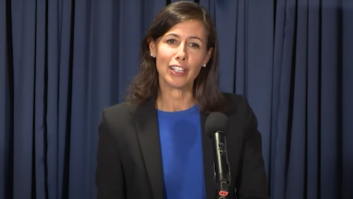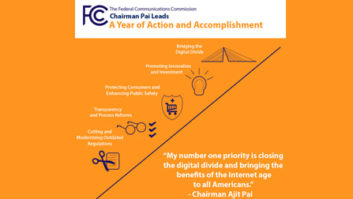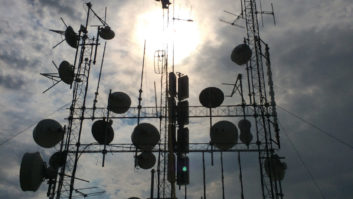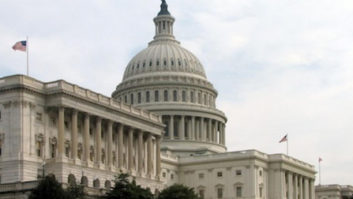FCC Enforcement Items to Watch
Mar 1, 2014 7:00 AM, By Lee Petro
Turns out Benjamin Franklin was wrong. Not only are death and taxes certain, a broadcaster can also expect the FCC’s Enforcement Bureau to come knocking at some point. While one could hope that all is well on the home front, periodic and thorough reviews of your station’s records and facilities can help avoid a hefty fine. Recent enforcement actions taken by the FCC illustrate the possible tripping points for broadcasters to avoid.
Tower and Lighting Violations
Just in the past month, the Enforcement Bureau has issued proposed forfeitures to six broadcasters for alleged violations of the FCC’s tower and lighting rules. In one case, the fence surrounding the towers had fallen, providing unrestricted access to possible harmful radiation. Another forfeiture was imposed on a tower owner that had failed to keep the tower painted so that good visibility could be maintained. In another case, the FCC proposed a forfeiture of $20k to a licensee that constructed a tower, and then failed to paint it, or install the required lighting, for 10 years. Despite the fact that the station had participated in an alternative inspection program, and thus should have been exempt from FCC inspections for three years, the FCC stated that it maintains jurisdiction to resolve tower safety issues regardless of such participation. Licensees should also ensure that their tower’s lighting remain functional. In a recent action, the FCC issued a forfeiture of $10k to a tower owner that failed both to monitor its lighting, and to notify the FAA that the lighting was not functioning, even after the FCC provide the licensee with notice of the problem.
Public File Violations
Another frequent tripping point for broadcasters is maintaining the required documents in the station’s local public inspection file. The FCC requires broadcasters to maintain records on a number of different subjects including the station’s authorizations, pending applications, complaints from the public, and quarterly issues/programs lists. During the most recent renewal cycle, the failure of licensees to timely compile and place issues/program lists in the station’s public file was a big source of violations and delays in granting renewal applications. For example, the FCC recently issued a $7,500 forfeiture to a broadcaster that had failed to place 15 quarterly reports in the public file. To help remedy the problem, the FCC has posted a self-inspection checklist for broadcasters, which includes a detailed list of the records to be maintained. Licensees should periodically review the file with the list in hand, to ensure that materials are not missing, outdated or have been removed without the station’s knowledge.
Avoiding FCC Violations
Most of these violations could have been avoided by a timely review of the respective station’s records and tower site. One way to help avoid violations (and the possible fines) is to participate in a state broadcaster association’s alternative inspection program. If the station is clear of violations, the FCC is notified and the station is exempt from inspection for three years unless either a complaint is filed or there are suspected tower safety issues (see above). If the inspection discovers possible violations, the licensee is given time to correct the deficiencies, and may invite the inspectors back for a new inspection. While the state broadcasters charge a fee for such services, the amount of the fee is certainly less than the fine that would be imposed by the FCC.
Resolving Forfeitures
If the FCC finds a violation, it could issue a Notice of Apparent Liability for Forfeiture, in which it proposes a fine and offers the licensee an opportunity to present an explanation. The licensee may also present evidence that it lacks of the ability to pay the fine and seek a reduction or the adoption of a payment plan.
In addition, the FCC has entered into consent decrees with licensees that resolve rule violations. By entering into a consent decree, the licensee may be able to negotiate a reduction of the proposed forfeiture. Common in such decrees is the licensee’s agreement to adopt a compliance program that may involve additional training of station staff, and additional FCC reporting requirements. Often times, these consent decrees are entered into in connection with the grant of a long-pending renewal or assignment application.
FCC Dateline

April/May: Stations in Delaware and Pennsylvania file License Renewal Application and EEO Program Report, and Noncommercial radio stations file Ownership Report (323-E) by April 1, 2014. Commence running License Renewal Post-Filing Announcements, continuing on April 16, May 1 and 16. All stations must place 1Q2014 Issues/Programs list in their public files by April 10, 2014.
Petro is of counsel at Drinker Biddle & Reath, LLP. Email: [email protected].
March 2014
New products at the 2014 NAB Show, handling metadata in automation, testing AM antennas, IP codecs and more….












